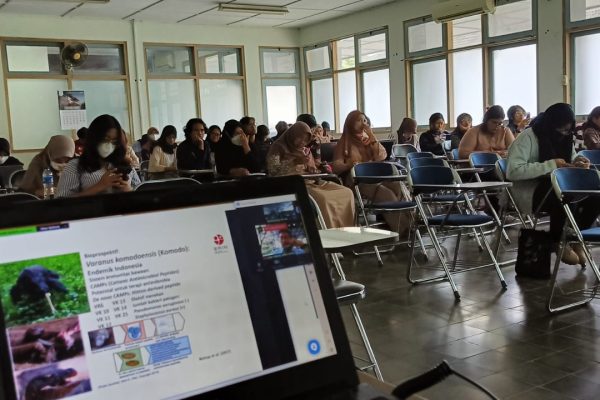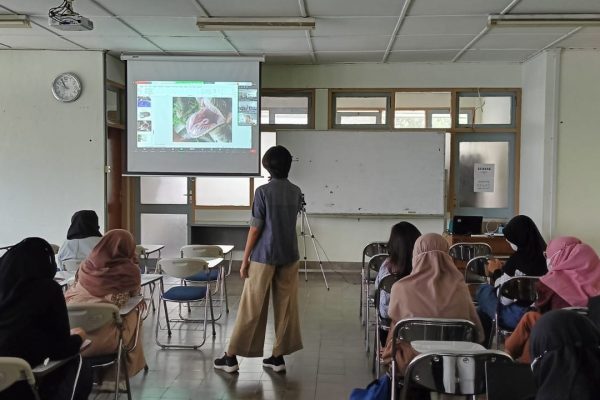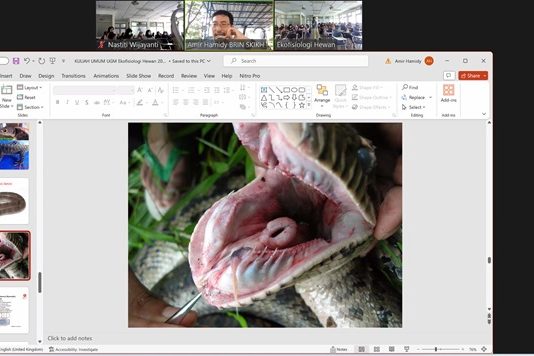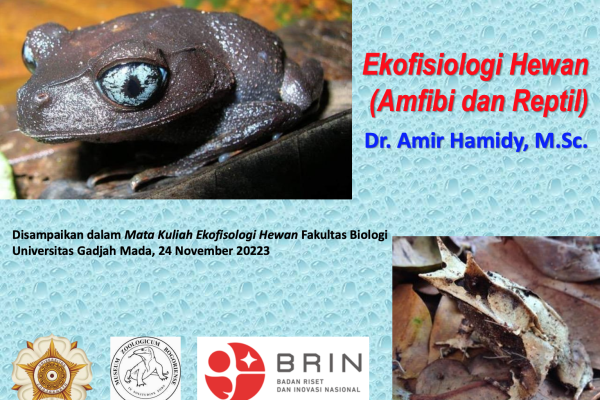On Friday, November 17th and Friday, November 24th, 2023, a Guest Lecture on Animal Ecophysiology was conducted online through a Zoom meeting. The Animal Ecophysiology course is a compulsory course in the functional interest field (animals), taught by professors in the Animal Physiology Laboratory. Dr. Amir Hamidy, M.Sc., an alumnus of the Faculty of Biology UGM, participated as the speaker. Currently, Dr. Amir Hamidy, M.Sc. works as a Senior Researcher at the National Research and Innovation Agency (BRIN) and holds the position of Director of the Secretariat for Biological Diversity Authority at BRIN. During the first session, Dr. Amir Hamidy discussed topics related to the eco-physiology of amphibians and reptiles in Indonesia. The explanation aimed to provide insights to students in both Regular and IUP classes regarding the research field pursued by Dr. Amir Hamidy. After the presentation, a discussion and Q&A session took place. The students actively participated by asking questions and discussing various aspects presented by the speaker. This discussion provided students with the opportunity to clarify and deeper understanding of the topics discussed.In the second session, government policies related to the utilization of genetic resources for animal research, analysis of opportunities and challenges in animal ecophysiology research, and procedures for obtaining research permits for wild and protected animals in Indonesia were explained.
This Guest Lecture provided students with profound insights into the biodiversity richness in Indonesia and the potential research that can be conducted in the field of animal ecophysiology. Moreover, it facilitated interaction between students and experts, aiming to open opportunities for future knowledge development and collaborations. As a follow-up, there’s an expectation for further activities or in-depth workshops related to the presented material. This could offer students opportunities for deeper engagement in research and application of animal eco-physiology concepts in real-world contexts. In its implementation, this initiative is also expected to support Sustainable Development Goal (SDG) number 15 (Life on Land), which focuses on the protection and conservation of terrestrial biodiversity.





